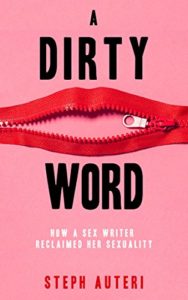
Lisa Romeo recently wrote that every activity she engages in lately seems to have multiple purposes. I immediately got what she was saying. Gone are the days when I read merely for pleasure. These days, when I read, I am looking for inspiration. I am looking for books I might cover in my role as a Book Riot contributor. I am looking for news hooks I can use as jumping off points for larger stories. When I read, I can’t help but see books from the point of view of a writer.
This past December, I read Mira Ptacin’s Poor Your Soul, a memoir of multiple losses. I felt acutely, the entire time I was reading, that I was being given a master class in memoir writing. Ptacin’s book—beautiful and heartbreaking—was a clear example of How A Memoir Should Be. I felt small in comparison. My old friend, impostor syndrome, crept in.
Earlier this month, I picked up Lidia Yuknavitch’s The Chronology of Water, an entirely different kind of memoir. Both raw and lyrical, I wanted to weep for how beautiful it was, how it had taken the memoir genre and rocketed it onto an entirely new plane of existence. What have I been doing with my life? I asked on Instagram. Because if this was what memoir could be, I didn’t know what the hell I was writing.
Which is the mindset you can slip into when you take your book and give it to a team of people and allow them to break it down and build it back up and then break it down again, readying it for wider public consumption. When you write and revise and edit and rewrite and edit again, you come to hate everything you have ever written. You come to hate your voice and your story and your rhythm and your everything.
By the time I received the copyedited pages of my manuscript last week—to go through and accept and reject and rewrite some more—I had sort of come to like my book again. To be excited for its eventual release. But seeing the markups of a copy editor you have never met is humbling. What you consider to be artistry, the copy editor sees as inefficient, or awkward, or just plain wrong. What to push back against? What to just accept? Who am I to question the grammar gods?!
Nevertheless, this book of mine is making its way out into the world, for better or for worse, and that’s exciting as hell. I mean, there’s no turning back anymore. The book is actually on Amazon. And all of the other places. In all of its beautiful-book-cover glory.
 I mean seriously. Don’t you want to French kiss this book cover?
I mean seriously. Don’t you want to French kiss this book cover?
The book pubs at the beginning of October, and I am already planning book parties and readings and swag. All the swag. This frenzied productivity is helping to distract from the fact that my mom is inviting all of her friends to all of the book events even though she doesn’t seem to fully grasp what the contents of my book are.
Me: “Mom. Did you tell them what my book is about?”
Mom: “I just said it was about women’s issues or something.”
Me: ::facepalm::
later…
Me: “You know this book is about the sexy-sex, right?”
Mom: “Well, do you have to read those parts at your reading?”
Me: ::sobs uncontrollably::
I just want to point out to everyone that, yes, my book is about “women’s issues.” And the sexy-sex is a women’s issue. Also: our discomfort around sexuality—particularly female sexuality—is the reason I wrote this book.
Basically, I’m not Mira Ptacin. I’m not Lidia Yuknavitch. I’m me. And I hope people dig what I have to say.
If you would like your offspring to grow up like me and write for a cause they’re passionate about, I just want to remind everyone that I’ll be teaching a one-week class on such things at the Writers Circle’s Teen Summer Intensive in late July/early August. Register your teen here.
Also, in a few weeks, I’ll be teaching a nine-week class on the business of freelance writing, Tuesday nights in Montclair. If you want to learn how to get your work out into the world, and/or get paid for it, I’m here for you. Register here.
Onward.
